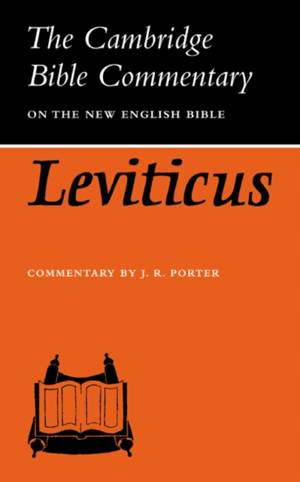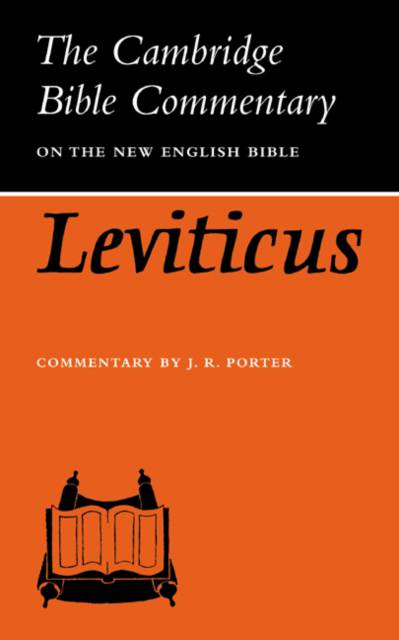
- Afhalen na 1 uur in een winkel met voorraad
- Gratis thuislevering in België vanaf € 30
- Ruim aanbod met 7 miljoen producten
- Afhalen na 1 uur in een winkel met voorraad
- Gratis thuislevering in België vanaf € 30
- Ruim aanbod met 7 miljoen producten
Zoeken
€ 69,45
+ 138 punten
Omschrijving
The book of Leviticus originally formed part of a larger whole comprising what are now the first four or five books of the Old Testament. Its name is descriptive - 'the Levitical book' being about the personnel of the temple, all of whom were supposed to be descended from Levi. In one way the description is accurate, since the material was produced among the priesthood which had survived the fall of Judah to the Babylonians in 587 BC as a manual of instruction for its members. However, since priests in Israel gradually emerged as leaders of the nation, the book of Leviticus is also directed at the laity and, by the promulgation of laws set in a historical narrative, intended to instruct them in their religious and civil obligations.
Specificaties
Betrokkenen
- Auteur(s):
- Uitgeverij:
Inhoud
- Aantal bladzijden:
- 244
- Taal:
- Engels
- Reeks:
Eigenschappen
- Productcode (EAN):
- 9780521097734
- Verschijningsdatum:
- 30/04/1976
- Uitvoering:
- Paperback
- Formaat:
- Trade paperback (VS)
- Afmetingen:
- 127 mm x 203 mm
- Gewicht:
- 267 g

Alleen bij Standaard Boekhandel
+ 138 punten op je klantenkaart van Standaard Boekhandel
Beoordelingen
We publiceren alleen reviews die voldoen aan de voorwaarden voor reviews. Bekijk onze voorwaarden voor reviews.











